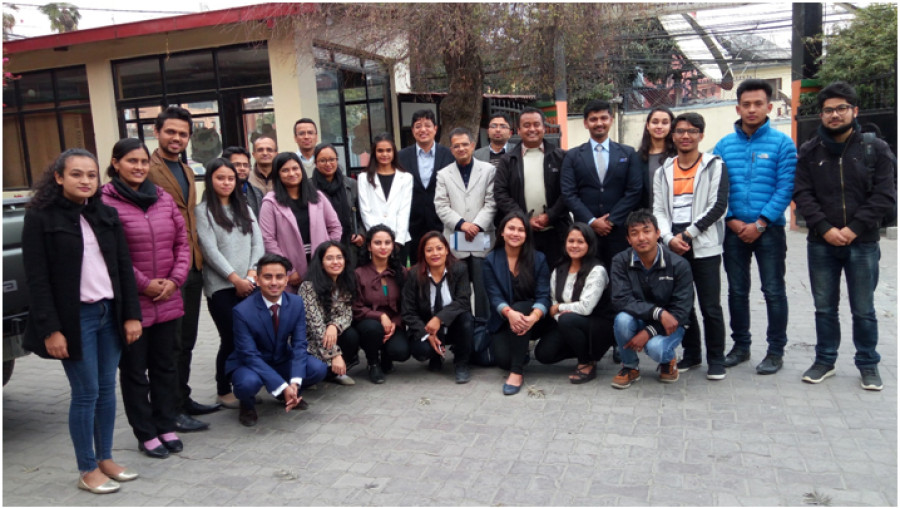Miscellaneous
One day workshop organised in Kathmandu on Single Cell Protein
A group of undergraduate students from St. Xavier's College, Maitighar, Kathmandu hosted one day workshop on Single Cell Proteins with an aim to address the nutrition crisis prevalent in the country and surrounding on Thursday.
A group of undergraduate students from St. Xavier's College, Maitighar, Kathmandu hosted one day workshop on Single Cell Proteins with an aim to address the nutrition crisis prevalent in the country and surrounding on Thursday.
The workshop, brought together professionals from different scientific field, entrepreneurs, advisors on food and drug manufacturing, waste management specialists, administrators and academia to share ideas and opinions about this novel form of food and its potential application in Nepal so as to solve the nutrition deficiency, already prevalent in some parts of the country.
Single Cell Protein refers to the dried microbial cells or total protein extracted from pure microbial cell (algae, bacteria, molds and yeasts), which can be used as a food supplement to humans or animals. In addition to its wide variety of nutrient value, owing to the wide possibility of methodologies, raw materials and microorganisms available for its preparation, it is considered to be the most valuable component present today, for future food security.
In the workshop, seven students currently in their final year of Bachelors in Science under the department of Microbiology at St. Xavier's College, affiliated to Tribhuvan University shared their findings with project’s final product as Single Cell Protein obtained by them in the laboratory using agricultural and dairy wastes as raw material.
Project supervisor Sagar Aryal, a lecturer at St Xavier’s said, “If given an opportunity, we can definitely make single cell protein as the future of nutrition in Nepal”.
The workshop was funded by The Institute for Social and Environment Transition- Nepal (ISET-N), a non-governmental and not-for-profit organization working to address the emerging social and environmental challenges in the country, as a part of its Aabiskar Fellowship program, which supports undergraduate students in Nepal for their creative ideas.




 8.54°C Kathmandu
8.54°C Kathmandu









